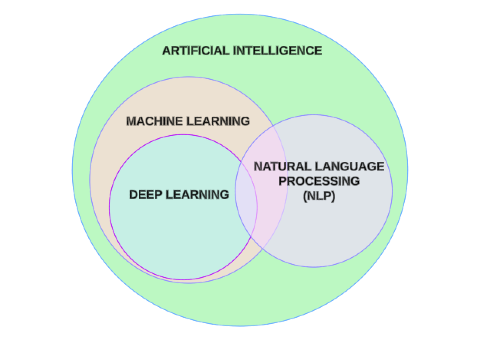Beginner's Guide to Artificial Intelligence
Artificial Intelligence (AI) is rapidly transforming our world, making tasks more efficient and opening up new possibilities in various fields.
Artificial Intelligence is a branch of Computer Science that focuses on making machines perform tasks that normally would require human intelligence.
Imagine having a smart helper that can understand, learn, and make decisions similar to humans. That's AI in a simple form!
But how does AI work, and why is it so important? And how will AI impact job growth? Let's dive into this blog to explore AI and its potential.
How AI works ?
AI systems learns from the data (can be raw text, audio, and video). They use algorithms to identify patterns and make predictions. This is similar like teaching a child, if you show them examples, they learn to recognize and respond to similar situations.
Why is AI Important?
AI is transforming the way we live and work. Here are some key reasons why AI is important:
- Automation: AI can automate repetitive tasks, freeing up human workers to focus on more creative and strategic work.
- Improved Decision Making: AI can analyze large amounts of data to identify patterns and trends that humans may miss and provide insights to help us make better decisions.
- Personalization: AI can tailor products and services to individual preferences, leading to more personalized experiences. For example, recommending movies or products based on user preferences.
- Innovation: AI can help researchers and innovators develop new products and services. For example, AI-powered drug discovery can accelerate the development of new medications.
Types of Artificial Intelligence
1. Narrow Intelligence (NI):
Most common type of AI and it's designed to perform a specific task, like facial recognition or playing chess.
For example,
Voice assistants like Siri or Alexa, which can understand and respond to speech, are narrow AI.
2. General Intelligence (GI):
This type of AI that can perform any intellectual task that a human can. General AI can possess the ability to learn, adapt, understand and implement knowledge at human level.
A classic example of General Intelligence is Large Language Models (LLM).
LLM tools such as chatGPT, claude.ai, Llama and Gemini have shown the ability to generalize across many tasks—as of 2024, this is still a theoretical concept and researchers are working towards it.
3. Super Intelligence (SI):
The final level of AI is super intelligence, refers to a future scenario where AI surpasses human intelligence in nearly all economically valuable work.
Difference between AI, ML, DL and NLP
AI is a broad field with several subsets, including machine learning and deep learning and natural language processing.

Artificial Intelligence (AI): It is branch of computer science focused on performing tasks without human intervention. Similar like mimicking human intelligence to perform a task.
Machine Learning (ML): It is focused on developing algorithms and perform tasks with the ability to learn without explicitly being programmed. In other words, machine learn to perform tasks by learning from datasets.
Deep Learning (DL): It is subfield of machine learning. It is responsible for many inspiring AI advancements seen in the news, such as self-driving cars and chatGPT. Inspired by the brain's structure.
Natural Language Processing (NLP): It is subfield of Artificial Intelligence that uses machine learning to enable computers understand and communicate with human language. Its research has enabled the era of generative AI, by leveraging Large Language Models (LLMs).
Everyday Applications of AI
Knowingly or unknowingly, we use AI technologies in many aspects of our daily lives.
Here are a few examples:
- Virtual Assistants: AI-powered assistants like Siri, Alexa, and Google Assistant help with tasks like setting reminders, playing music, or answering questions.
- Recommendation Systems: AI algorithms suggest products, movies, or content based on user preferences and behavior. Various platforms like Netflix, Amazon, and Spotify use AI to suggest movies, music and products.
- Healthcare: AI helps doctors diagnose diseases, recommend treatments, and even predict patient outcomes.
- Autonomous Vehicles: Self-driving cars use AI to navigate roads, avoid obstacles, and make driving decisions. Potentially safer and more efficient transportation systems in the future.
Employement growth in AI
AI industry is experiencing a rapid growth, creating a surge in demand for skilled professionals. As AI continues to evolve, it's expected to generate new job opportunities across various sectors. Some of the emerging job roles in AI includes:
- AI Engineers: Develop and implement AI algorithms and models.
- ML Engineers: Design and build machine learning systems.
- Data Scientists: Collect, clean, and analyze large datasets to extract valuable insights.
- AI Research Scientists: Conduct research to advance the field of SI.
- AI Product Managers: Oversee the development and launch of AI-powered products.
How to learn AI from scratch 2024
AI is a vast and exciting filed with numerous subtopics. Learning AI can be exciting and demanding, so one needs to have a clear roadmap and right resources to achieve your goals. This blog will guide you through a structured approach to mastering AI in 2024.
The time it takes to learn AI can vary widely, depending on your existing knowledge, dedication, and the learning resources you choose. While self-study can be a viable approach, it may require several months to a year or more to develop a strong foundation in AI concepts, programming languages like Python, essential mathematics, and various machine learning algorithms.
However, the investment of time and effort is undoubtedly worthwhile. AI is the future, offering limitless opportunities for innovation, efficiency, and problem-solving across diverse industries. By acquiring AI skills, you position yourself at the forefront of technological advancement.